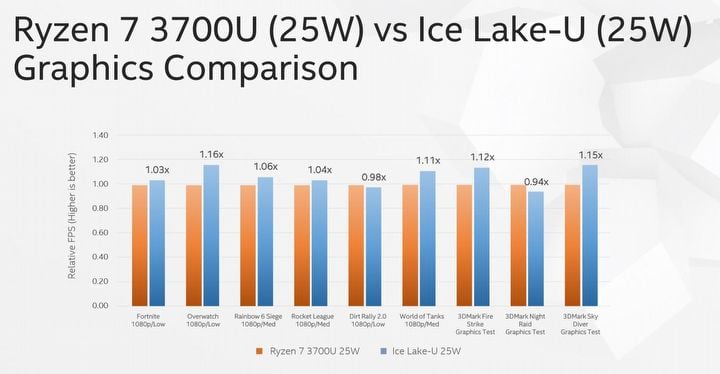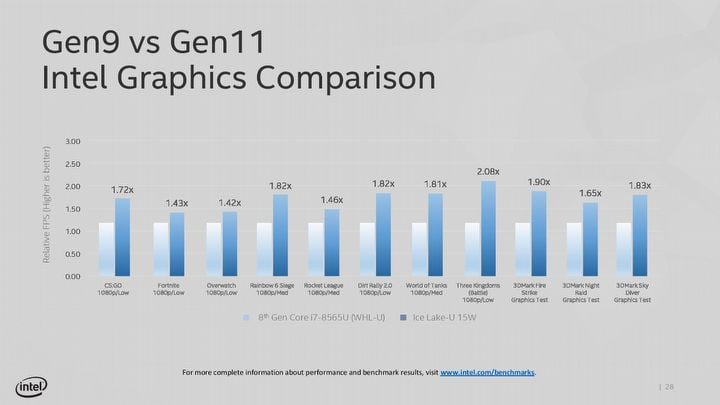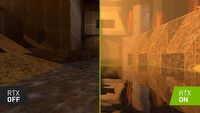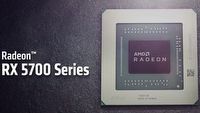Intel Unveils Core i9-9900KS and Ice Lake's Benchmarks
Intel surprised everyone and introduced the new powerful Core i9-9900KS processor at the beginning of this year's Computex. In addition, the company boasted the performance of their 10 nm Ice Lake processors.
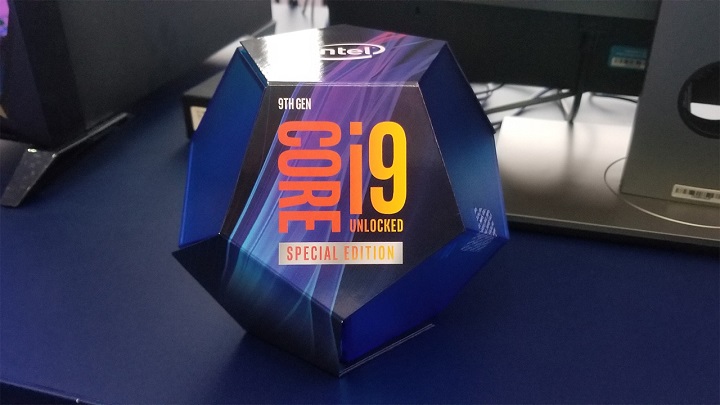
Nobody expected Intel to present a mainstream CPU in the near future, which will be faster than the i9-9900K. However, this is exactly what happened during the presentation at Computex trade fair - Core i9-9900KS CPU, which in boost mode offers 5 GHz clock on all cores, has seen the light of day.
Small big differences
So what's changed? Available for a long time, Core i9-9900K offers 3.6GHz and 5.0GHz base rate in boost mode. For Intel processors, this usually works in such a way that the first core actually reaches its maximum clock, while the clocks of the others stop at slightly lower values. Meanwhile, in i9-9900KS's boost mode, all cores will operate at 5.0 GHz.
In addition, Core i9-9900KS, like the i9-9900KS, will have eight cores supporting sixteen threads, but its base rate is set at 4 GHz. The processor also has an integrated graphics card. Intel does not specify what the processor's TDP will be or whether it will require any special cooling.
Interestingly, Intel has already had a few faster chipsets, such as Core i9-9990XE, but they are designed for specialized applications and are very difficult to get by. According to the representative of Chipzilla, the i9-9900KS is to be the forerunner of the future. What's that? That we do not know.
First Ice Lake benchmarks
Intel also presented several benchmarks to showcase the graphics performance of the long-awaited (and delayed) Ice Lake family of mobile processors, based on Sunny Cove architecture (10 nm) and integrated Gen11 graphics.
The company claims that the chip easily defeats similar AMD models. Remember, however, that these are benchmarks prepared by the manufacturer, so they should be treated with caution. However, no matter how you look at it, the changes are significant, and Intel ensures that the system will deliver over a teraflops of computing power.
In practice, this represents a major step forward from the previous generation of integrated chipsets and gives you the ability to play some titles in 1080p resolution without a dedicated graphics card. The performance gains compared to Gen9 are 72% in CS:GO and 42% in Overwatch.
Intel's chipset was compared to the Ryzen 7 3700U AMD model, which also has a 25W TDP. The results showed that it performs 16% better in Overwatch and 15% faster in 3DMark benchmark (Skydiver test). While not all tests are in Intel's favor, it's good to see that AMD finally has some real competition in the field of integrated systems.
More information about the chipsets should be revealed on Tuesday, when Intel planned its main presentation.
0
Latest News
- GTA 6 is not „content complete.” Jason Schreier vs. Tom Henderson in dispute over state of Rockstar's game
- Will we get StarRupture console version soon? Xbox and PS5 releases explained
- Two sources confirm what Wolfenstein fans have been waiting for. Ninja Theory is developing a game that will fix the Hellblade series' biggest flaw
- Player collected all the games for his beloved console. It took him „only” 20 years
- „We're devastated that this is happening.” Ubisoft fired the entire studio just a month after it unionized
